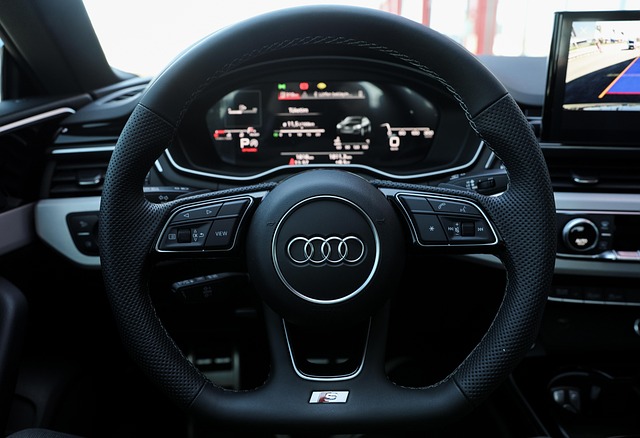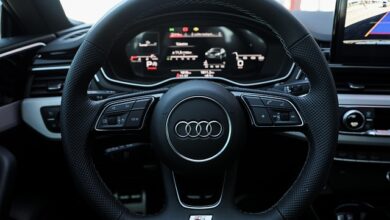The Pros and Cons of Usage-Based Car Insurance in Luxembourg

Usage-based car insurance, also known as pay-as-you-drive (PAYD) or telematics insurance , is gaining traction worldwide as a modern alternative to traditional auto insurance models. In Luxembourg, where driving habits vary widely due to urban commutes, rural travel, and cross-border work, usage-based insurance offers a personalized approach to pricing premiums. By leveraging technology such as GPS devices, smartphone apps, or onboard diagnostics, insurers track driving behavior and mileage to determine policy costs. While this model has its advantages, it also comes with potential drawbacks. In this article, we’ll explore the pros and cons of usage-based car insurance in Luxembourg to help drivers decide if it’s the right choice for them.
What Is Usage-Based Car Insurance?
Usage-based car insurance calculates premiums based on how much and how well you drive. Instead of relying solely on factors like age, gender, or vehicle type, insurers analyze real-time data such as:
- Distance driven (mileage).
- Driving habits (speeding, braking, acceleration).
- Time of day (e.g., nighttime driving may be riskier).
- Location (urban vs. rural driving).
This data is collected through telematics devices installed in your car or via smartphone apps that monitor your trips. The goal is to reward safe and low-mileage drivers with lower premiums while charging higher rates to those who pose greater risks.
The Pros of Usage-Based Car Insurance
1. Lower Premiums for Safe Drivers
- How It Helps: If you’re a cautious driver who avoids speeding, hard braking, and risky maneuvers, usage-based insurance can significantly reduce your premiums.
- Luxembourg Context: Many Luxembourgers commute short distances within the country or across borders into Belgium, France, or Germany. Safe, low-mileage drivers benefit from paying only for what they use.
2. Cost Savings for Low-Mileage Drivers
- How It Helps: Traditional insurance policies often charge flat rates regardless of how much you drive. With usage-based insurance, infrequent drivers pay less because their premiums are directly tied to mileage.
- Luxembourg Context: Residents in densely populated areas like Luxembourg City may rely on public transport or drive sparingly, making PAYD an attractive option.
3. Encourages Safer Driving Habits
- How It Helps: Knowing that your driving behavior is being monitored can incentivize safer habits. For example, avoiding harsh braking or reducing nighttime driving could improve your score—and lower your premium.
- Luxembourg Context: With narrow roads in rural areas and heavy traffic in urban centers, promoting safer driving aligns with national road safety goals.
4. Personalized Pricing
- How It Helps: Usage-based insurance tailors premiums to individual driving patterns rather than relying on generalized statistics. This ensures fairer pricing for drivers whose habits differ from the norm.
- Luxembourg Context: Cross-border workers who spend significant time commuting might find traditional policies overcharge them compared to actual risk levels.
5. Environmental Benefits
- How It Helps: By encouraging reduced mileage, usage-based insurance promotes eco-friendly behaviors, contributing to lower carbon emissions.
- Luxembourg Context: As a small but environmentally conscious nation, Luxembourg supports initiatives that align with sustainability goals.
The Cons of Usage-Based Car Insurance
1. Privacy Concerns
- The Issue: Telematics systems collect detailed information about your location, driving routes, and habits. Some drivers worry about data privacy and potential misuse by insurers or third parties.
- Luxembourg Context: Given Luxembourg’s proximity to neighboring countries, frequent cross-border trips could raise questions about how data is shared internationally.
2. Higher Costs for Risky Drivers
- The Issue: Drivers with poor habits (e.g., frequent speeding or late-night driving) may face steep increases in premiums. This could disproportionately affect younger or less experienced drivers.
- Luxembourg Context: Young professionals commuting long distances or working night shifts might struggle with affordability under this model.
3. Limited Availability
- The Issue: Usage-based insurance is still relatively new in Luxembourg, meaning options may be limited compared to traditional policies. Not all insurers offer telematics programs, reducing competition and choice.
- Luxembourg Context: Smaller insurers may hesitate to adopt advanced technologies due to implementation costs, leaving consumers with fewer alternatives.
4. Technical Challenges
- The Issue: Installing and maintaining telematics devices can sometimes lead to technical issues, such as connectivity problems or inaccurate data collection. Smartphone apps may drain battery life or fail during trips.
- Luxembourg Context: Rural areas with weaker cellular signals could experience difficulties in accurate tracking, potentially affecting premium calculations.
5. Potential for Discrimination
- The Issue: Critics argue that usage-based insurance could inadvertently penalize certain groups, such as shift workers or individuals living in remote areas who must drive longer distances.
- Luxembourg Context: Rural residents or cross-border commuters might feel unfairly treated if their unavoidable driving patterns result in higher premiums.
Who Should Consider Usage-Based Car Insurance?
Usage-based car insurance isn’t a one-size-fits-all solution. It works best for specific types of drivers:
- Low-Mileage Drivers: Those who rarely use their vehicles or primarily rely on public transportation.
- Safe Drivers: Individuals with excellent driving records who want to save money by proving their responsible habits.
- Urban Residents: People living in cities like Luxembourg City, Esch-sur-Alzette, or Differdange, where shorter commutes are common.
- Eco-Conscious Drivers: Those aiming to reduce their environmental impact by minimizing unnecessary trips.
Conversely, high-mileage drivers, night-shift workers, or anyone uncomfortable with constant monitoring may prefer traditional insurance models.
Tips for Choosing Usage-Based Insurance in Luxembourg
If you’re considering usage-based car insurance, keep these tips in mind:
- Compare Providers: Research insurers offering telematics programs in Luxembourg and compare their terms, discounts, and customer reviews.
- Understand Data Collection Policies: Ensure you know what data will be collected, how it will be used, and whether it will be shared with third parties.
- Test the Technology: Before committing, test the app or device to ensure it functions reliably in your area.
- Monitor Your Driving Score: Regularly check feedback provided by the insurer to understand how your habits affect your premium.
- Evaluate Long-Term Costs: Calculate whether the potential savings outweigh any additional fees associated with the program.



